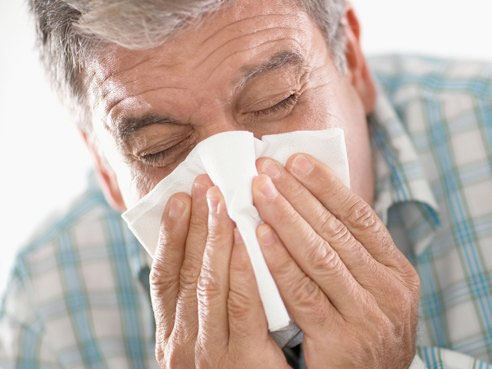 Flu season lurks around the corner throughout the United States, and gerontologists at the University of Alabama at Birmingham say the elderly are at increased risk for getting the flu and often have a worse time coping with flu symptoms than do younger people.
Flu season lurks around the corner throughout the United States, and gerontologists at the University of Alabama at Birmingham say the elderly are at increased risk for getting the flu and often have a worse time coping with flu symptoms than do younger people. The flu could be especially severe for the 39.6 million older adults in the United States. Defined as 65 years or older, the group makes up almost 13 percent of the total population. Add to that the number of people who care for an aging person — patient, parent or friend — and the impact on older people is even greater.
There are three things an older person or a caregiver should do, according to Andrew Duxbury, M.D., associate professor in the Division of Gerontology, Geriatrics and Palliative Care at the UAB School of Medicine:
- Get a flu shot — it could help reduce the severity of an illness
- Wash your hands regularly
- Avoid crowds
If you or an older person you know has flu symptoms, Duxbury suggests paying more attention to things like staying hydrated. Appetite and thirst mechanisms are different for older people; they can tip over into dehydration in less than a day if they do not keep fluids up.
Older people also need to get out of bed at least a minimal amount and sit up, which is better for the lungs and helps avoid pneumonia. Call the doctor if there is a productive cough or fever higher than 101 or if the patient is feeling short of breath.
Duxbury reminds caregivers to get a flu shot too. Caregivers are an important link to the outside world for older people, which means they could also be vectors for the flu virus.
“One way to make yourself sicker and make an illness last longer is to try to push through it,” he said. “Caregivers may feel obligated; but if you are sick, you shouldn’t be caring for a senior. Now is a good time to think about your plan B. Who is going to step in and take your place?”
Duxbury says that, while older people are more susceptible, they have already lived through worse flu seasons.
“The current elder population lived through the 1957 and 1968 pandemics,” he said. “They’ve seen a lot.”